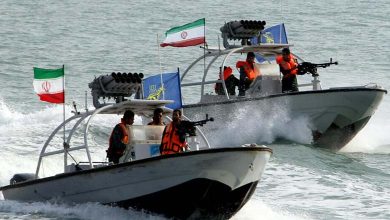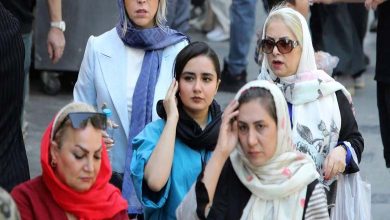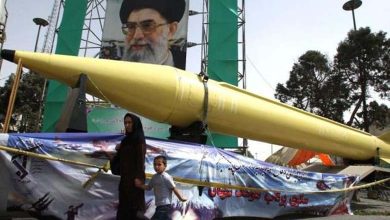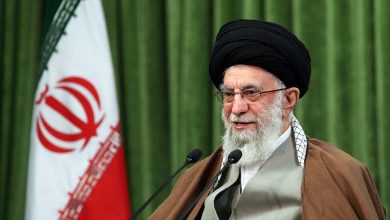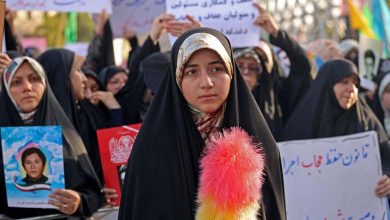Baloch women join Iran’s anti-authority protests

Women in Iran’s Sistan-Baluchestan province on Friday joined widespread protests sparked by the death of Mahsa Amini, a move rights groups say is “rare” in the largely conservative region.
Videos posted online showed dozens of women in the provincial capital of Zahedan holding signs reading “Woman, Life, Freedom”, one of the most prominent slogans of the protest movement that began in mid-September.
Women wearing Tchador chanted “With or without hijab, go to revolution,” according to videos posted on Twitter and verified by Agence France Presse.
Iran is rocking women-led protests that erupted after the death of Amini, 22, a Kurd, after she was arrested by ethics police who accused her of violating the Islamic Republic’s strict dress code for women.
The Oslo-based Human Rights Organization in Iran reports that security forces have so far killed at least 448 protesters, mostly in Sistan-Baluchestan, in southeastern Iran bordering Pakistan and Afghanistan.
“It is indeed rare,” said Mahmood Amiri Moqaddam, the organization’s director, referring to the recent women’s demonstration in Zahedan. Over the past two months, men have taken to the streets after Friday prayers.
“The current protests in Iran are only the beginning of a revolution of dignity,” he told AFP.
“These protests empowered women and minorities, who for four decades have been treated like second-class citizens, to take to the streets and demand their basic rights,” he said.
Baloch women are among the “most vulnerable to persecution” in Iran, he said.
Dozens of men also took to the streets on Friday to chant, “We don’t want a government that kills children,” according to another video posted by activists on social media.
Sunni-majority Sistan-Baluchestan is the poorest region in Iran and its Baloch population is discriminated against.
At least 128 people have been killed in Sistan-Baluchistan in the crackdown by the Iranian authorities, according to Human Rights Watch, the highest death toll recorded in 26 of Iran’s 31 provinces.
More than 90 of those people died on September 30 alone, which became known to activists as “Bloody Friday.”
The protests were sparked by the alleged rape in prison of a 15-year-old girl by a police chief in the provincial city of Chabahar.
Analysts say the Baloch movement was inspired by protests related to Amini’s death, which began to demand women’s rights before expanding to include other demands.
“Iran’s Baloch minority has faced inherent discrimination that restricts their access to education, health care, jobs, adequate housing and political office,” Amnesty International said Tuesday.
“The Baloch minority has borne the brunt of the brutal crackdown by security forces during the uprising that has swept Iran since September,” the London-based rights group said in a statement.
Kurdistan ranks second in the number of those killed in the protests (53 people) as Amini’s birthplace, according to the Organization for Human Rights in Iran. Located in western Iran on the border with Iraq, the province is another center of protests in what is predominantly Sunni Islam.
Iran accuses the United States, Britain and Israel of fueling what it says is widely interpreted as “riots.”
The official IRNA news agency reported Friday that authorities have summoned foreign diplomats 12 times since protests erupted “in response to.. unprecedented pressure” on the Islamic Republic from their countries.
Meanwhile, Iranian Foreign Minister Hossein Amir Abdollahian complained in a phone call to UN Secretary-General Antonio Guterres about “acts carried out by the United States and other Western countries to incite riots in Iran.”
Iran has blamed separatists for the violence linked to protests in Kurdistan, while it has carried out frequent deadly cross-border strikes in Iraq targeting Kurdish groups in exile.
An Iranian general said this week that more than 300 people had been killed in the unrest.
Thousands of Iranians and about 40 foreigners were arrested in connection with the events, while more than 2,000 people were charged, according to judicial authorities.
On Friday, UN experts urged the Iranian authorities to “unlawfully” release detained human rights activist Arash Sadeghi, saying he has cancer of the bone that is life threatening.




